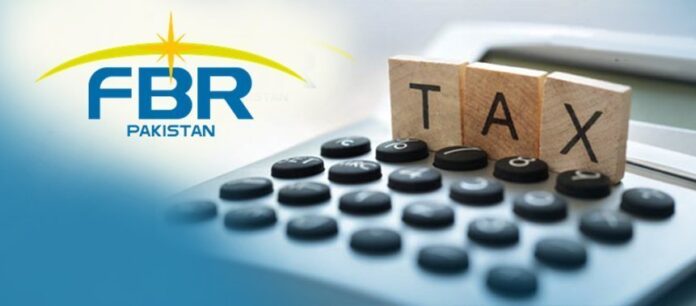The Federal Board of Revenue (FBR) has provisionally collected Rs872 billion in January 2025, falling short of the Rs956 billion target by Rs84 billion. This shortfall contributes to a cumulative revenue gap of Rs468 billion for the first seven months (July-January) of the fiscal year 2024-25.
According to sources, the FBR collected Rs6,496 billion during the first seven months of the ongoing fiscal year 2024-25, against the assigned target of Rs6,964 billion.
While the trend of slower revenue collection is expected to persist in February, officials anticipate a recovery in the last quarter of the fiscal year, mitigating further losses.
The expected increase in palm oil imports by March 2024 is also projected to boost tax revenues, particularly in import-related duties, helping to narrow the revenue gap in the coming months.
According to the FBR officials, the International Monetary Fund (IMF) evaluates tax collection on a quarterly basis instead of a monthly basis. The revenue collection target from January to March is Rs3,150 billion, and the FBR expects improved collection in March as economic activity picks up.
The FBR faced a cumulative shortfall of Rs386 billion during the first half of the ongoing fiscal year 2024-25.
On Thursday, Federal Board of Revenue (FBR) Chairman Rashid Mahmood Langrial informed the Senate Standing Committee on Finance that the Rs386 billion revenue shortfall in the first half of FY25 was primarily due to lower-than-expected autonomous growth. He attributed this to exchange rate stability, lower inflation, and sluggish GDP and manufacturing sector growth.
Langrial projected that the shortfall could reach Rs447 billion by February 2025 but expressed confidence that revenue growth would accelerate in the final four months of the fiscal year, preventing further losses.
He also noted that policy measures introduced in the Finance Act 2024, expected to generate Rs1.3 trillion, had underperformed due to behavioral shifts among real estate investors and traders, along with estimation errors.
Despite the shortfall, the tax-to-GDP ratio has improved, rising from 9.5 percent in the first quarter to 10.8 percent in the second quarter. However, it remains below the IMF’s target of 13.6 percent by the end of the program.




